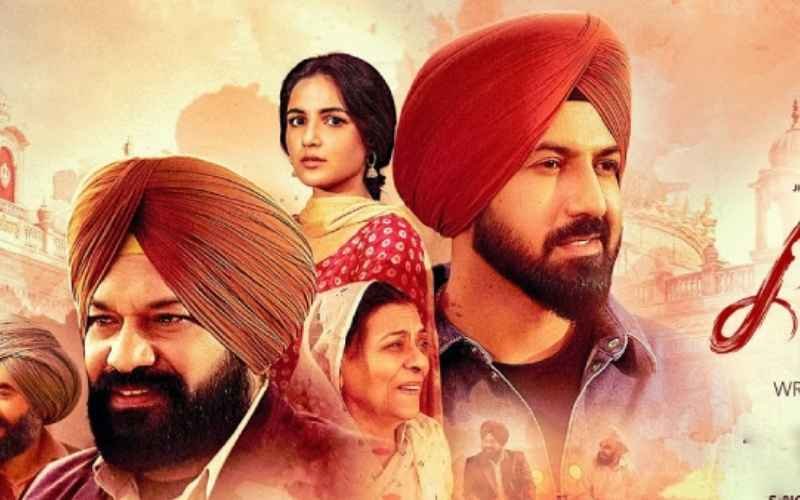Reviewed by Mohammad Gulam, Digital Marketer
Ardaas Sarbat De Bhale Di (2024), the third installment in Gippy Grewal’s acclaimed Ardaas series, ventures into familiar territory with a fresh narrative twist. As a loose adaptation of Geoffrey Chaucer’s The Canterbury Tales, the film aims to explore the human condition through a pilgrimage that reveals the varied and profound stories of its characters. Despite its ambitious scope, the film struggles to balance its multifaceted themes with its devotional core.

The story centers on Gurdyal Singh (Malkeet Rauni), a Canadian expatriate who, after suffering partial paralysis, sets out on a long-intended pilgrimage to Hazur Sahib. Accompanied by his estranged son Sahej (Gippy Grewal), who harbors deep-seated grievances against his father, the journey becomes a transformative experience for both. Along the way, they encounter other pilgrims, each grappling with their own personal struggles.
The film excels in its portrayal of individual hardships and societal issues. Bani (Jasmin Bajwa) is depicted as a once-vibrant woman now lost in despair, while Sadhu Singh (Prince KJ Singh) faces the heart-wrenching challenge of caring for his paralyzed daughter. These stories offer emotional depth and insight into the various trials faced by the characters.
However, Ardaas Sarbat De Bhale Di encounters several challenges in its execution. The narrative’s pacing is uneven, with the first half dragging as it sets up the pilgrimage, while the second half gains momentum only towards the end. The film’s attempt to cover a broad range of social issues—including aging parents, gender disparity, and alcoholism—leads to a cluttered storyline. The pilgrimage itself occasionally loses its focus, turning into a sightseeing tour with seemingly random detours for song sequences set in picturesque locales.
Gippy Grewal, also the director and writer, brings his experience to the forefront, ensuring that even minor roles are given attention. Veteran actors like Gurpreet Ghuggi, Nirmal Rishi, and Seema Kaushal contribute to the film’s rich tapestry, though the screenplay sometimes rushes through significant arcs, leaving some resolutions feeling hurried and predictable.
While the film’s messaging on communal harmony, embodied by the figure of the driver Salim Khan, is a poignant element, the overall impact is somewhat diluted by the film’s preachiness and its attempt to juggle too many issues simultaneously.
In conclusion, Ardaas Sarbat De Bhale Di is an emotional and earnest attempt at reflecting on human struggles through a devotional lens. It provides ample material for reflection but falters in its execution due to its ambitious scope and uneven pacing. The film’s dedication to addressing significant social issues is commendable, but its delivery leaves much to be desired.
Rating: 3 Stars








